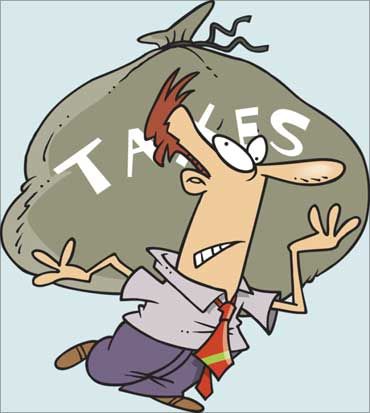Tax experts say there is concern about the future of SEZs in the event tax incentives are phased out
 Corporate India is looking to next week’s budget for wide-ranging tax reforms like abolition of the Minimum Alternate Tax and clarification on the tax status for Special Economic Zones apart from the government burying the ghost of retrospective tax once and for all.
Corporate India is looking to next week’s budget for wide-ranging tax reforms like abolition of the Minimum Alternate Tax and clarification on the tax status for Special Economic Zones apart from the government burying the ghost of retrospective tax once and for all.
Prime Minister Narendra Modi and Finance Minister Arun Jaitley had promised tax and banking reforms during their interaction with corporate leaders during Make-In-India week, to take the manufacturing sector’s share in the gross domestic product from the current 18 per cent to 25 per cent.
One of India Inc’s top demands is the abolishing of the minimum alternate tax or MAT, which will put a significant cash flow in the hands of taxpayers to make much needed investments.
If the corporate tax rate is to be reduced to 25 per cent over the next three years, and investment and profit-linked exemptions and deductions are to be phased out, then there is a very good case to phase out MAT and ultimately scrap it, according to Khaitan & Co's Daksha Baxi and Raghav Bajaj.
The rationalisation of deductions, exemptions and incentives should narrow the difference between taxable income and book profits.
The difference between the basic tax rate and the effective MAT rate is likely to narrow and eventually lead to the phasing out of the MAT, say chief financial officers.
Another demand from companies is the government bury the ghost of retrospective tax. In spite of the Modi government making repeated announcements in this regard, the income tax department continues to send notices to taxpayers in legacy cases.
This has created an image among investors abroad that the government and the tax department are not in sync.
Vodafone, Cairn and Shell are multinational companies that have spent huge money in legal costs over tax notices. These cases are pending at stages of litigation and are being arbitrated upon but tax notices are still being sent by the department.
Clarity on this would help improve business sentiment, business leaders said.
Tax experts say there is concern about the future of SEZs in the event tax incentives are phased out.
These have lost popularity since 2011-12, when the MAT and a dividend distribution tax were implemented to prevent erosion of the tax base.
Phasing out tax holidays could reduce investments in SEZs further amid sharply slowing exports, according to Standard Chartered Bank.
Baxi and Bajaj say the government should also look at replacing the DDT with compulsory dividend withholding tax regardless of the tax status of the recipient shareholder, except reduction due to the provision of the applicable tax treaty.
DDT is not available for credit to an investor in its home country against the local tax on the dividend received.
This results in high tax incidence for investing in India: corporate income tax plus DDT plus tax on dividend in the home country.
“This encourages complex tax reduction structures, which no jurisdiction appreciates, as borne out by the base erosion and profit shifting action points.
India can move to DWHT in place of DDT.
This will reduce significant amount of tax litigation,” say Baxi and Bajaj.
Another key recommendation is that the government restore capital gains tax treatment for buy-back of shares.
The additional tax payable by companies upon buy-back is on the difference between the amounts paid by the company less what it received from the shareholder.
Restoring the tax treatment in the hands of the investor would remove this anomalous situation.
WISH LIST
- One of India Inc’s top demands is the abolishing of the MAT
- Another key demand is that the govt bury the ghost of retrospective tax
- Phasing out tax holidays could reduce investments in SEZs further, according to StanChart
- Another recommendation is that the govt restore capital gains tax treatment for buy-back of shares












 © 2025
© 2025